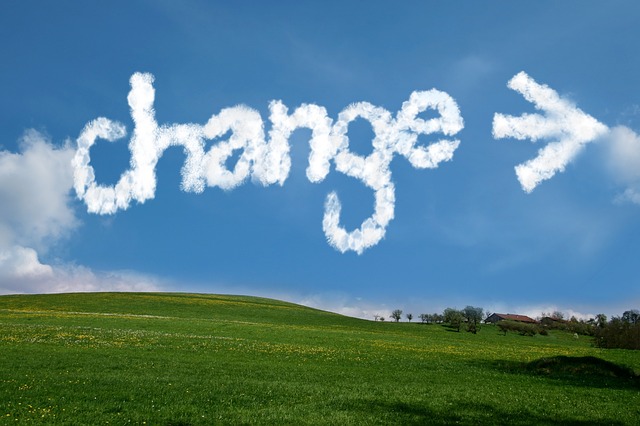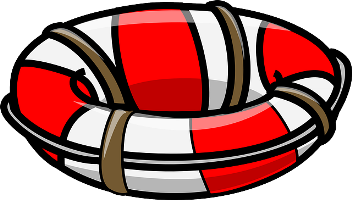Tips, strategies, approaches, attitudes and ways to support a person living with disability in particular brain injury

Celebration after brain injury Image by
Celebrations after brain injury can be tricky. This article is updated and reposted each year before the end of year. Timed for when Christmas, Hannukah, New Year and other celebrations abound. It acknowledges that managing celebrations after brain injury can be difficult. Filled with expectation and anticipation - it does not always deliver on the promise. It would be great to hear from you about your own experiences and strategies. Managing Celebrations after Brain Injury 2015 I do not want to be accused of being the Grinch who stole Christmas, so please let me start by wishing those of you celebrating Christmas a very special time. And for everyone I hope it is a wonderful new year. Why am I in danger of being called the Grinch? Well, in the middle of a major holiday celebration, I am about to suggest that birthdays, anniversaries, Christmas, and celebrations after brain injury do not always go so well together. Expectations can be high and…
Making the right choices. Making good decisions. Clear and simple strategies for making decisions after brain injury. While researching last weeks article on Changed Decision-Making After Brain Injury I came across a blog; Brain Injury Self Rehabilitation by Edie a Registered Nurse. Edie had a brain injury following an assault while at work and had written the article below - full of helpful tips to assist making decisions after brain injury. Simple tips on decision making when life is so indecisive after brain injury 09 November 2012 If you are over 18 there are no safeguards to help with your decision making. If you make the wrong decision you are held responsible. It doesn’t matter that your clarity of thought is disrupted, because who can tell if it’s what you want to do or it’s another decision you make carelessly? It may be that you are easily persuaded to make decisions based on what another is telling you. Help prevent problems with…
Decision making after brain injury is commonly affected particularly after Frontal Lobe damage. Decision making is an executive function. That is a fancy brain term that makes these functions sound very important - and they are! Executive functions help us use our intellect . They help us to look at information coming into the brain and decide what to do about it. Decision-making along with other executive functions (such as planning, organising, and being able to start things) are often damaged after brain injury. Brain injury, particularly frontal lobe damage can affect our flexibility and ability to make decisions. Being able to make good, thoughtful, decisions also helps other executive functions to work properly. You are more likely to be able to sort out a solution to a problem if you are able to make a decision - hopefully a good one. You can plan better if you are able to make decisions about the steps and priorities that are needed.…
Tips on What 'To Say' When a Person Has A Brain Injury or Other Life Changes. The previous article "To Say or Not To Say - After Brain Injury Part 1" looked at what people say that sometimes can be hurtful, unhelpful and at times damaging albeit with good intentions. Today some tips and alternatives for what to say after brain injury to ensure more positive communication. Most of the links in the previous article also contain alternative and better ways to communicate. Here are a few more: 10 Things People with a Brain injury would like to hear A simple list of statements and questions from Brainline that might be helpful, or at least less upsetting than the “what not to say’ statements. Examples like – “I will bring you some delicious healthy brain foods and snacks — and come to sweep and do laundry, but don't worry, I won't stay too long.” “Take your time — we are not…
Years ago I discovered I am a happier being if I don’t watch or listen to the news. Events and news frequently filters through through despite my efforts. Sometimes as a balance to all the woeful news it is good to be reminded of the wonderful side of human beans. My reminder this week came when I saw on an article on Atlas Obscura entitled “The Grave of Mister Rogers”. It reminded me I had discovered some of the wonderful things Mister Rogers had said and saved it for an article ‘one day’. This week seems a good time, and today is that ‘one day’. What’s all this got to do with brain injury. Nothing specifically - yet a lot really. Many of the quotes I have read describe empathy, compassion, tolerance, acceptance, being non-judgemental. All attributes which would serve us well - brain injury or not. Confession – until stumbling across the articles a few years ago I had not…
‘Tips for Getting Through the Stages of Change After Brain Injury” – this is another list I found in my archives. It is a single well worn sheet with ‘Bear in Mind presentation’ across the top. Bear in Mind is now Brain Injury Matters an organisation in Melbourne, Australia for and by people with brain injury. "Brain Injury Matters Inc (BIM) facilitates self-advocacy and community education for people living with an Acquired Brain Injury. BIM is currently organising events and improving this website to better deliver these services." See what you think about these tips - are they useful when managing change after brain injury? Well not just the changes after brain injury, any major change really. Please add your comments below. This is the complete list - without me butting in to comment. I leave it to you to take on board what you might find useful: Tips for Getting Through the Stages of Change After Brain Injury From…

Brain Injury and Fundamental Attribution Error - impressive party conversation!
I remember during the lecture the presenter outlined the potential impact of brain injury and Fundamental Attribution Error (FAE). I remember the topic of the talk was challenging behaviour after brain injury. I remember the presenter was a Scottish guy who focussed on people with significant behaviour issues after brain injury. I remember while new to me, the theory made sense. So much so, I remember it still… And I remember thinking - Fundamental Attribution Error (FAE) - that’s a topic sure to impress at a party! No not really. Today my bumbling attempt to talk about the link between attribution theory and how behaviour after brain injury is responded to. We might all benefit from understanding more about it so help me out here. Sharing knowledge is always a good thing. I am no expert on all of this. What I aim to do is to share some stuff I have picked up. If you are an expert, or if you have some great resources about…
Privacy after brain injury. Messy. Complex. Important. Do you think it is different to privacy for any citizen? I say Yes … sometimes. People can usually choose what remains private. A person with brain injury, or a person with a disability may find this choice - of what is private and what is not – decided for them, not considered, or disregarded. There are times when it is even more messy, more complex, and more important. That is what this article is about – what makes privacy after brain injury messy and what you can do about it. Privacy After Brain Injury This whole privacy thinking was brought to mind through an article sent to me by FFB (Friend and Fellow Blogger ) ExcusesVsLife. The article was this one about Michael Schumacher and the lack of information made public about his brain injury. What really got me thinking (and a bit steamed up) was the flavour throughout the article that we…
Fatigue after brain injury: Cognitive fatigue, Brain fog, Mental fatigue, Brain fatigue, Brain exhaustion, Mental tiredness, Foggy brain. I love the last one! All terms that can mean "I'm so tired my brain hurts". Please Remember This: To begin here is the key message I want to make – We can all get foggy brain. Most of us recover quickly and it doesn’t happen too often. After brain injury - foggy brain is not cute, and it is often not a temporary thing. After brain injury 'foggy brain', is more professionally called cognitive fatigue. It does not go away without paying it attention and it can come back over and over again. Introducing Cognitive Fatigue After Brain Injury A few years ago (I just realised - 3 years ago almost to the day!) I wrote a post “I’m So Tired My Brain Hurts.” This has been the source of many letters, and one of the most read articles. Recently it was suggested…
“Self Care is important.” “Look after yourself first”. Who listens to those words? With trauma, complex needs, brain injury - more not less self care is needed. 'Self care.' Those words will have many running from the page already. Declarations of "I don't need this." "I know how to look after myself thanks." Yet it is important - for people living with brain injury, for family, and for supporters. In my experience family members often know it is important but can’t find time to do it. People living with brain injury are too busy surviving each day. And rarely do supporters/ workers feel the need to look after themselves. Training sessions for professionals and support workers about “Self Care” were poorly attended. At sessions when asked what brought people to a self care session the response was often that the person was sent by their boss. Or “I can look after myself” “I do exercise every day I’m fine” “I am supporting…








